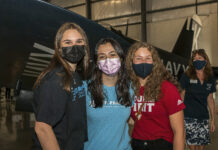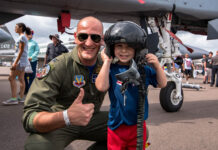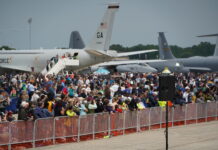This issue of Air Shows Magazine is packed full of useful and important information. It includes preliminary details on the 2012 ICAS Convention, scheduled this year for December 10-13 at the Paris Las Vegas Hotel. There’s an interesting “virtual panel presentation” on trends in air show marketing and an in-depth look at how some members are using their events as mass casualty exercise opportunities for emergency response professionals. We also have a profile/photo essay on the World War II Weekend that is held in Reading, Pennsylvania each June.
But there are two articles that I want to call your particular attention to. In the first, Dan Hollowell, the ICAS Director of Operations, tells us how ICAS is putting its accident/incident analysis to work in educating members on safety hazards. And the second provides results and analysis of the ICAS membership needs survey conducted this spring.
Hollowell’s article provides an overview of what we have learned in the three years since we first started focusing on collecting information from accidents, incidents, close-calls and other safety concerns. Individually, these reports are interesting, but – collectively – they provide us with the kind of actionable information that the industry needs to make long-lasting improvements to safety in our business.
Sadly, the 2012 air show season has become a reminder of how important those improvements are to our business. After four different near-tragic close calls in the first half of the season, we crept into September without a single fatal air show accident. Then, in the space of just six days, two ICAS members – Glenn Smith and Bob Odegaard – died in separate accidents in Iowa and North Dakota. Both accidents are still under investigation, so we won’t speculate on the possible causes of either. But they serve as grim reminders to all of us that business as usual is no longer an option. A true change to the culture of air show safety means that we must adjust the way we conduct our business if we are to have a true and lasting impact on the accident rate in our industry.
In his column, Hollowell gives us a few hints about where those changes are likely to come from. Our Safety Incident Response Procedures (SIRP) are collecting information, generating useful data, and identifying trends that ICAS is putting to use to alert members – performers, event organizers and air bosses – to the sometimes difficult lessons learned by others. Dan’s article gives a mid-term assessment of how that process is working, and how it will fit into the longer term safety goals of ICAS and the rest of the air show industry.
You’ll also be interested in reading the article that summarizes the results of the 2012 ICAS membership needs survey. Results are compared with identical surveys conducted in 2002 and 2007. Many of this year’s responses are also subdivided by event organizers, performers and support service providers. Overall, the article provides a clear, frank assessment of how members feel about ICAS membership services now and what they expect from their organization in the future.
Nearly 500 members participated in the survey. Some of the results supported or amplified feedback that we received in the past. For example, we know that members are focused on the benefits of the ICAS Convention. And we know that readership of our quarterly magazine has been increasing steadily during the last ten years. But we also learned some new things: that the expense of attending the convention is much less of an obstacle to attendance now than it was five or ten years ago, and that attention and concern about air boss training has increased significantly in just the last few years, as two examples.
There’s so much information in the results that it’s difficult to generalize, but it is clear that…
- the membership is largely satisfied with the ICAS Convention and the various publications – both print and digital – currently published by ICAS;
- member satisfaction, needs and expectations often differ considerably between event organizers, performers and support service providers with event organizers typically more satisfied and performers typically less satisfied;
- the membership wants ICAS to expand beyond its traditional role as an organization focused on its convention and publications into a group that is active in other areas, from lobbying and public relations to member mentoring and air boss certification to corporate sponsorship solicitation and non-convention education and training; and
- members don’t feel that ICAS is doing a good job of communicating all that the organization is already doing on their behalf.
ICAS has conducted its membership needs assessment survey every five years for some time, and we regularly put that information to immediate and productive use to improve existing programming and develop new membership benefits. This year, survey results will also help the Board of Directors in its efforts to develop a new five-year strategic plan. And, at both the tactical and strategic level, we will immediately begin to implement some of the ideas and suggestions gleaned from this survey. In fact, we have already changed some of our convention programming and added strategic planning goals largely in response to the information contained in these survey results.
We are a small industry with limited resources and that makes it all the more important that we focus those resources on the challenges and opportunities that you are most interested in seeing ICAS address. We are making important progress in that direction. Expect to hear more about those initiatives during the next few months.








